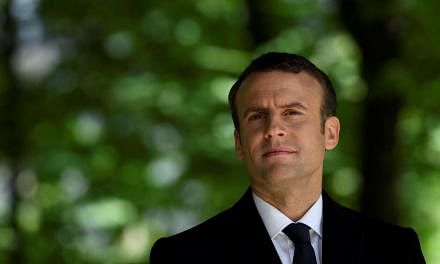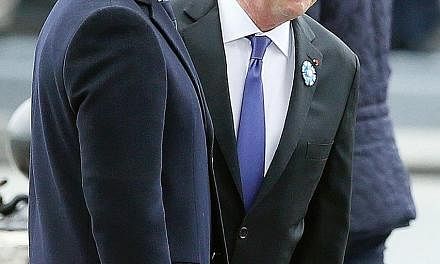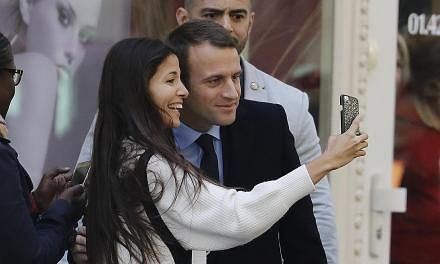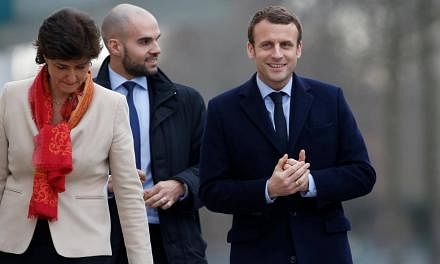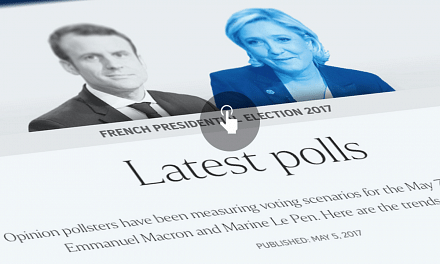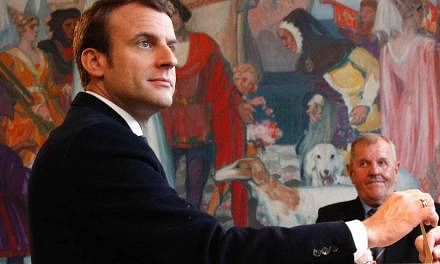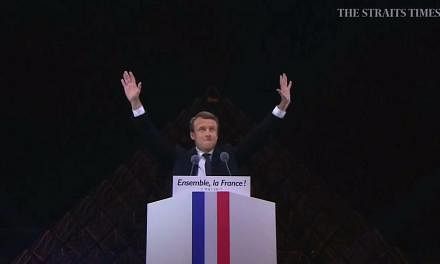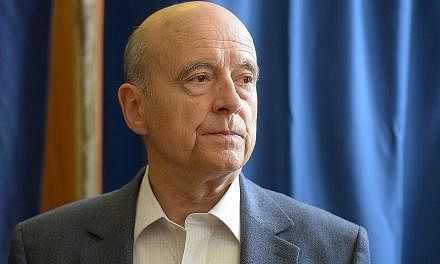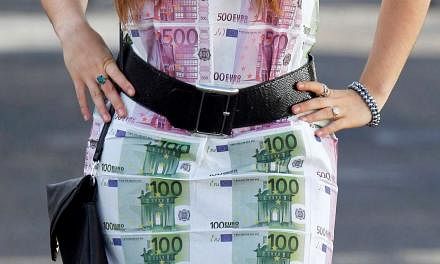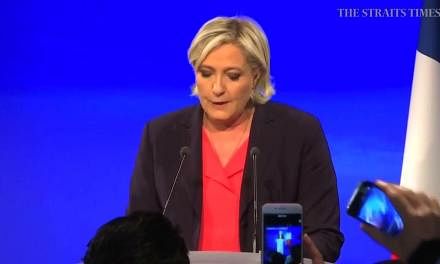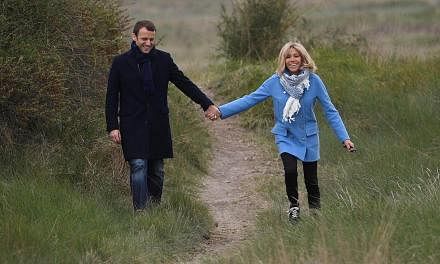PARIS • France was on course to see a lower voter turnout for the first round of its closely contested presidential election, despite the poll outcome being seen as vital for the future of the beleaguered European Union.
Far-right leader Marine Le Pen and centrist Emmanuel Macron were the favourites to progress to a run-off on May 7, but predictions of a winner were tough to make at press time yesterday as people voted in a deeply divided country.
Amid heavy security, voter turnout by 5pm local time was 69.42 per cent, slightly down from the same stage in the last election in 2012, when the voter participation rate was 70.59 per cent, the Interior Ministry said. These compare to 73.87 per cent in 2007 and 58.45 per cent in 2002.
To draw people out to vote, taxi firms in Brittany, in north-west France, offered free rides to polling stations for those living in far-flung areas, daily Le Figaro reported. At least one bar, also in Brittany, gave out free drinks to people who voted.
The outcome of the vote will show whether the populist tide that saw Britain vote to leave the EU and Mr Donald Trump elected president of the United States is still rising, or starting to ebb.
-
How electoral process works
-
Q How is the French president elected?
A The president is elected directly by the people in a vote of one or two rounds. If no candidate obtains an absolute majority in the first round, a run-off is held two weeks later. Every presidential election since 1965 has gone to a second round.
Q How does the election work?
A With 66,546 polling stations across the country, 46.87 million voters are registered to vote.
Polling stations opened at 2pm Singapore time yesterday and close at 1am Singapore time today, with the exception of Paris and other big cities, where polling stations will close an hour later.
The election is the first in the history of France's 59-year-old Fifth Republic to take place under a state of emergency.
Over 50,000 police backed by 7,000 soldiers from the Sentinelle (Sentry) anti-terror operation will be on patrol during the vote.
Q When will the results be released?
A Projections based on partial results usually come in at 2am Singapore time, but could be delayed due to the extra hour of voting. The two top candidates will go through to a run-off on May 7.
The next president will be sworn in by May 14 at the latest, taking over from Socialist President Francois Hollande.
Q Why is the election important?
A France is the European Union's second-biggest economy and also one of the world's biggest military and diplomatic powers.
With two of the leading four candidates hostile to the EU and Nato, the election could further shake up the West's liberal post-war order, already rattled by Britain's vote to leave the EU and Mr Donald Trump's election to the White House.
AGENCE FRANCE-PRESSE
Ms Le Pen, the 48-year-old leader of the National Front, hopes to capitalise on security fears catapulted to the fore of the campaign after the fatal shooting of a policeman in Paris claimed by the Islamic State in Iraq and Syria.
Mr Emmanuel Macron, 39, a centrist former banker who set up his party just a year ago, is the opinion polls' favourite to win the first round and beat Ms Le Pen in the two-person run-off on May 7.
For them to win the top two qualifying positions yesterday would represent a huge change in the political landscape. The second round would then feature neither of the mainstream parties that have governed France for decades.
But conservative Francois Fillon, 63, is making a comeback after being plagued for months by a fake jobs scandal, and 65-year-old leftist Jean-Luc Melenchon's ratings have surged in recent weeks.
Any two of the four have a chance to qualify for the run-off.
The seven other candidates, including the ruling Socialist party's Mr Benoit Hamon, 49, lag behind in opinion polls.
A high level of indecision added to nervousness for Ms Hanan Fanidi, a 33-year-old financial project manager who was still unsure as she arrived at a polling station in Paris' 18th arrondissement.
"I don't believe in anyone, actually. I have not arrived at a candidate in particular who could advance things. I am very, very pessimistic," she said.
In the wake of the policeman's killing last Thursday, 50,000 police and 7,000 soldiers had been deployed around France to protect voters. The terror attack was the latest in a bloody series that had cost more than 230 lives since 2015.
One polling station in Besancon, in eastern France, was briefly evacuated yesterday after a stolen vehicle was abandoned nearby with the engine running. The scare followed a brief evacuation at the French consulate in New York, where expatriates were casting ballots on Saturday, after a suspicious vehicle raised fears of a bomb threat.
Nearly 47 million people were eligible to vote, and most polling stations closed at 1am Singapore time today, with those in major cities shutting an hour later. The first projected results were expected shortly afterwards.
But Le Monde, a French newspaper, questioned whether exit polls would be able to determine the top two winners, given how tight the race was, the BBC reported.
To that, Mr Brice Teinturier, chief operating officer of polling firm Ipsos, said: "We will not take undue risk. If we are unable to decide between the second and third, we will say so."
AGENCE FRANCE-PRESSE, REUTERS
MORE ONLINE
For more stories and live updates, go to www.straitstimes.com

